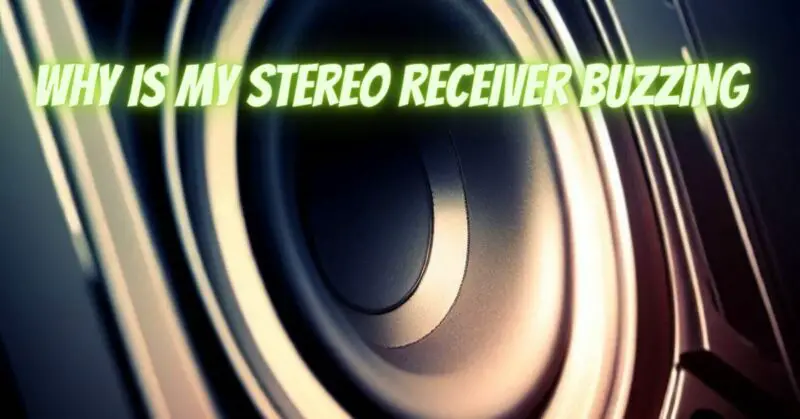A buzzing sound emanating from your stereo receiver can be frustrating, hindering your enjoyment of music and audio. However, understanding the potential causes and troubleshooting methods can help you identify and resolve the issue. In this article, we will explore some common reasons why your stereo receiver might be buzzing and provide practical solutions to rectify the problem. By following these steps, you can restore clear and crisp audio playback to your stereo system.
- Grounding Issues:
Improper grounding is a frequent culprit behind buzzing in stereo receivers. The lack of a proper ground connection can introduce electrical interference into the audio signal. Here are a few steps to address grounding issues:
a. Check Power Connections: Ensure that the power cord is securely plugged into both the stereo receiver and the electrical outlet. Loose connections can cause buzzing or humming sounds.
b. Use a Grounding Plug: Consider using a grounding plug, also known as a three-prong to two-prong adapter, if your receiver only has a two-prong power plug. This can help establish a proper ground connection and reduce interference.
c. Separate Audio and Power Cables: Keep the audio cables separate from power cables to minimize the chance of electrical interference. Crossed or tangled cables can introduce buzzing or humming noises.
- Faulty Cables or Connections:
Poorly shielded or damaged cables can contribute to buzzing in stereo receivers. Ensure that all connections are secure and free from any visible damage. Consider the following steps:
a. Check Audio Cables: Inspect the audio cables connected to your receiver, particularly the RCA or speaker cables. Replace any cables that show signs of wear, fraying, or damage.
b. Use High-Quality Shielded Cables: Invest in high-quality shielded audio cables to minimize interference. Shielded cables are designed to reduce electromagnetic interference and can help eliminate buzzing sounds.
c. Verify Proper Connections: Check that all audio cables are firmly connected to the appropriate input and output jacks on both the receiver and the audio source (e.g., CD player, turntable). Loose connections can cause buzzing or humming.
- Radio Frequency Interference (RFI):
External sources of radio frequency interference can introduce buzzing or humming sounds into your stereo receiver. Consider the following steps to address RFI:
a. Keep Electronics Away: Ensure that your stereo receiver is placed away from other electronic devices, such as televisions, routers, or wireless speakers. These devices can emit electromagnetic signals that interfere with audio signals.
b. Position Antennas Properly: If you use an antenna for radio reception, ensure that it is positioned correctly and away from other electronics. Experiment with different antenna placements to minimize interference.
c. Consider an RF Filter: Install an RF (radio frequency) filter on the power line connected to your stereo receiver. This filter helps reduce external radio frequency interference and can alleviate buzzing issues.
- Internal Component Issues:
In some cases, buzzing sounds may arise due to internal component issues within the stereo receiver. If the buzzing persists after addressing the above factors, consider seeking professional assistance or contacting the manufacturer for further guidance or repairs.
Conclusion:
A buzzing sound in your stereo receiver can diminish your listening experience. By troubleshooting potential causes such as grounding issues, faulty cables or connections, radio frequency interference, and seeking professional help for internal component issues, you can identify and resolve the buzzing problem. With a clear and well-functioning stereo receiver, you can enjoy your music and audio without the distraction of unwanted noise, ensuring a high-quality audio experience.


